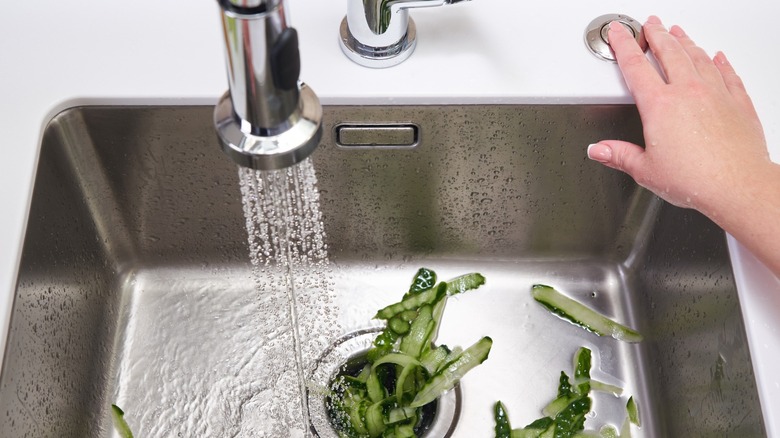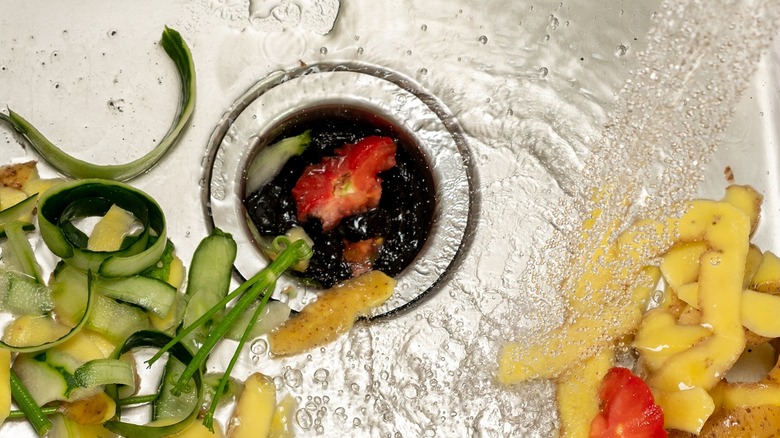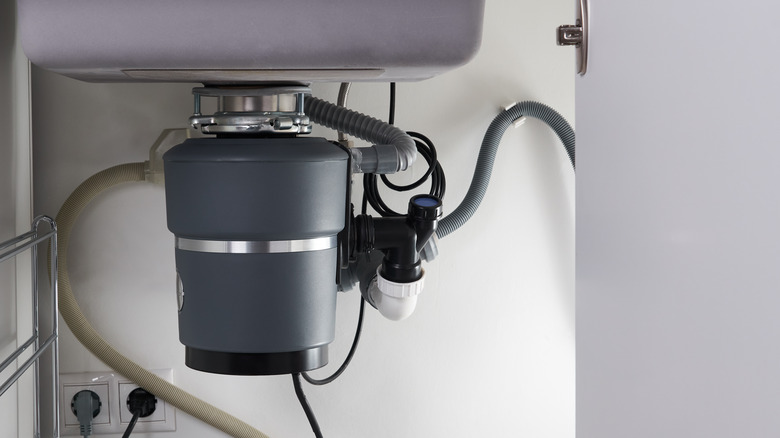The Correct Length Of Time To Run Your Garbage Disposal To Extend Its Lifespan
Taking care of your garbage disposal is essential if you want it to last as long as possible. One of the most important things to keep in mind is how long you should run it. Using it for the right amount of time will help keep it working great and extend its lifespan.
A garbage disposal unit is designed to grind food waste into smaller particles, allowing them to pass through the drain easily. To work properly, however, it's critical not to turn the disposer off too soon. Instead, let it continue to run for a bit longer (together with running water), even after you're confident the disposer is clear. Doing so will ensure the mashed-up food gets through the unit and into the drainpipe.
Letting your garbage disposal run for the proper amount of time will keep it clean and clear of discarded food and working as it should. Leaving any food in the disposer will result in spoiled food over time and potentially, backup issues for your home's plumbing system.
Optimal running time
Understanding the significance of running time and its impact on a garbage disposal's lifespan is essential. Typically, running the garbage disposal for around 30 seconds is enough to grind and dispose of the food waste effectively. Once the food scraps have been pulverized, turn off the disposal and allow the water to run for another 10 or 15 seconds. This additional water flow helps flush out any remaining particles from the drain, ensuring a clear and clean disposal system.
Different types and consistencies of food waste may require varying running times for effective disposal. For instance, softer and easily grindable items like vegetable peels or soft fruits may require only a few seconds of running time. On the other hand, tougher waste, such as meat scraps or fibrous vegetables, might need a bit more time to break down effectively. Running cold water while operating the disposal aids in solidifying greasy materials, preventing them from sticking to the blades or clogging the pipes. It also helps keep the disposal's motor and bearings cool.
Additional tips for trouble-free operation
While running time and proper usage play significant roles in extending the lifespan of your garbage disposal, other factors can influence its longevity. Overusing the disposal or frequently subjecting it to heavy-duty tasks can accelerate its wear. Certain waste materials can be particularly harmful to your garbage disposal. Examples include grease, oil, bones, and coffee grounds. Dispose of these items through alternative methods, such as composting or proper trash disposal, to prevent damage to your disposal unit.
Be cautious not to drop non-food items into the disposal. These can cause damage to the blades or jam the motor, leading to malfunctions and potentially shortening the appliance's lifespan. A strainer or stopper can help prevent unwanted objects from going down the drain. Also, establish a routine for cleaning your garbage disposal to remove any buildup or residue. Regular maintenance also involves checking the unit for leaks, ensuring the mounting hardware is secure, and tightening any loose connections.
By taking into account these additional factors and implementing the suggested tips, you can significantly increase the lifespan of your garbage disposal, ensuring its efficient and trouble-free operation for years to come.


